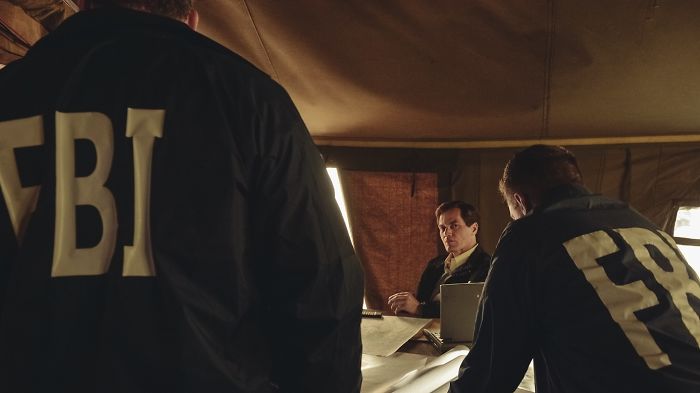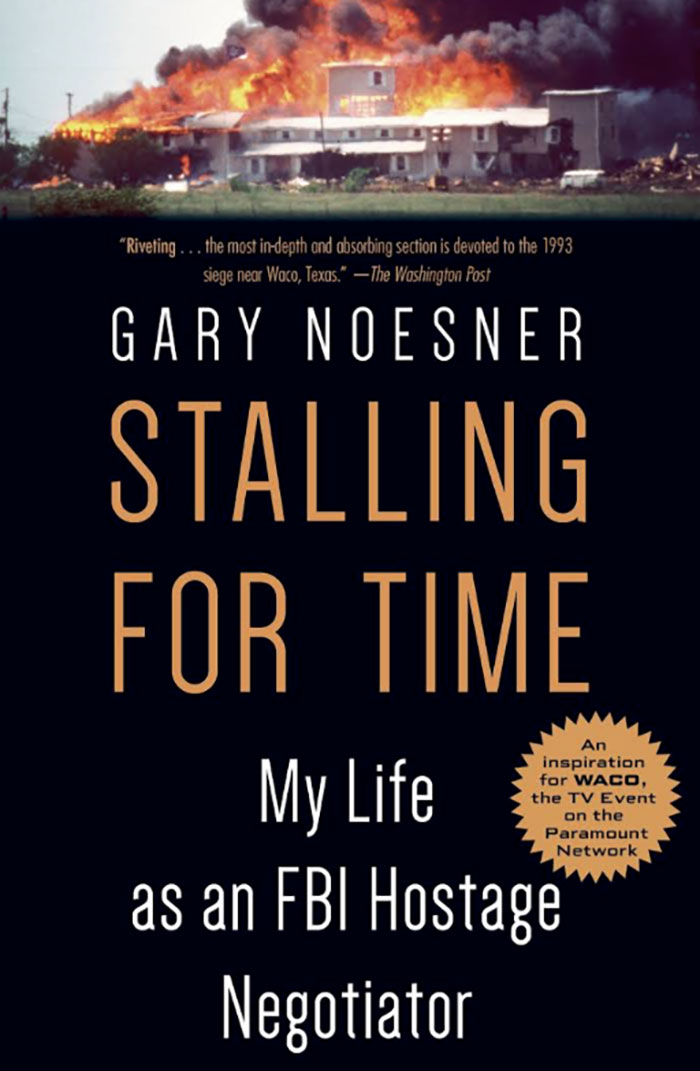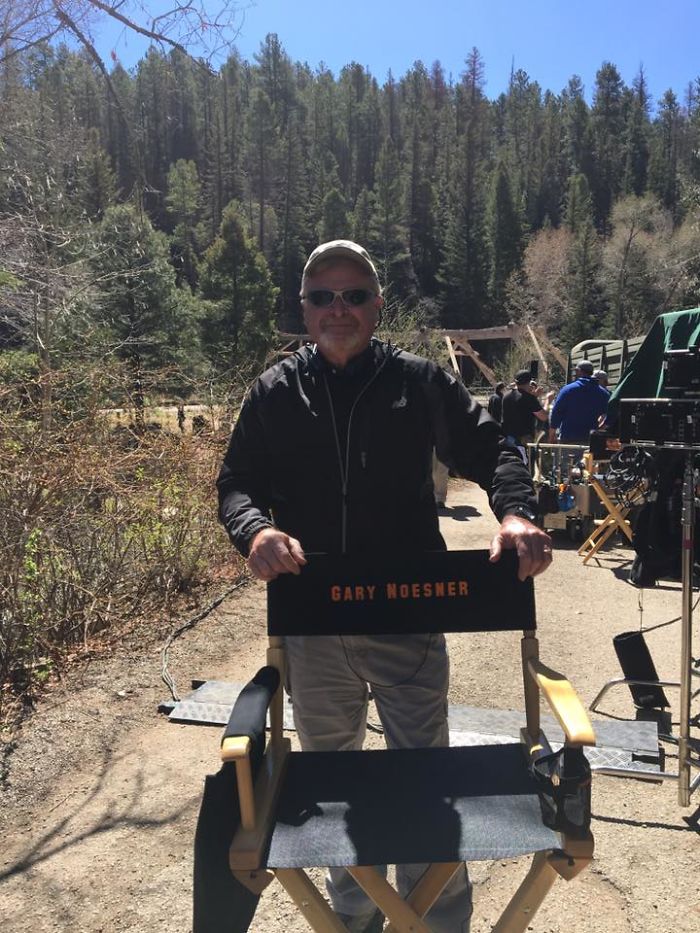
FBI Hostage Negotiator With 30 Years Of Experience Shares The Best Tactic To Get People To Wear Masks
Gary Noesner retired from the FBI almost two decades ago, after a 30-year career as an investigator, instructor, and negotiator. During his time there, Noesner had spent quite some time reasoning with what we would consider unreasonable people.
But when you think about it, we do too. Only not professionally. Flat earthers, homophobes, and anti-maskers; these guys are all around us. However, if we engage with them — yes, cousin Martin, I’m talking about you — our conversations get really heated really fast. And since we don’t have the communication skills that Noesner has, they usually end in swear words and rude gestures when they don’t have to.
Taking a look into the practices of a hostage negotiator could really help us to understand these people. Talk with them. Who knows, maybe even get them to reevaluate their thoughts and feelings. Let’s do that.
More info: garynoesner.com | Facebook
Image credits: garynoesner
“I retired in 2003 as the Chief of the FBI’s Crisis Negotiation Unit, Critical Incident Response Group,” Noesner told Bored Panda. “I was in charge of Operations, Instruction, and Research in all matters relating to crisis (hostage) negotiations for the FBI’s 350 field negotiators.”
The man had a full-time staff of 10 Supervisory Special Agent Hostage Negotiators who worked under him and when the bureau had a major crisis incident anywhere in the USA or overseas, they would deploy to run the negotiations. “We also provided both telephonic and physical assistance when asked for thousands of police agencies throughout the USA when they requested our input or help.”
Noesner has appeared in numerous television documentaries about hostage negotiation, terrorism, and kidnapping
Image credits: Paramount Channel
He has also written a book about his career, entitled Stalling for Time: My Life as an FBI Hostage Negotiator
Image credits: Gary Noesner
Noesner said there are many mistakes we can make when dealing with senseless individuals. “Arguing with the person, being overly confrontational, being insulting or demeaning, making fun of them, minimizing their concerns, failing to listen to their perspective, being rude or inattentive, being demanding and authoritative, and engaging in threats, to name a few.”
Image credits: The Welcome Conference
Beating them over the head with facts and logic won’t help too. “We have learned that people want to be listened to, to be heard and understood. They want to be respected and treated honestly. They need to have an opportunity to express their concerns, problems, and points of view.” The negotiator needs to listen and acknowledge their point of view, which can be done without either agreeing or disagreeing with them.
Image credits: pexels
“A negotiator uses Active Listening Skills to restate content (describe the issue or problem at hand driving them to act out) and reflect feelings (describing in your words how you think they feel based on what they are going through),” Noesner explained.
“This approach demonstrates to them that you are listening and understanding them. Successful negotiations are achieved by establishing a relationship of trust. The negotiator needs to demonstrate a genuine interest in helping the person in crisis resolve the incident peacefully, and not project the usual authoritative police demeanor. A caring tone and empathic approach work best.”
Image credits: Gary Noesner
It makes perfect sense. We probably all know how difficult it is to speak to someone who is angry, who feels they’re not heard or understood.
On the other hand, it’ really hard to argue with someone who is interacting with you sincerely, as if they genuinely care and choose a very non-confrontational way to listen to you.
Image credits: Gary Noesner
Noesner said there are a number of ways, or indicators, to help track whether or not negotiations are succeeding. “Obviously an increase in violent language, threats to hostages, or acts of violence would denote things are not going well.”
Image credits: wikimedia
“Conversely, a perpetrator becoming more conversant, willing to disclose personal information, voicing concern for his survival, and other indicators would denote progress is being made,” he said. “While we never give up on negotiations, we may get to the point of determining that the individual in question is highly likely to kill a hostage and/or himself. In such cases, the negotiator’s role then transitions into supporting tactical intervention, possibly setting up the perpetrator for tactical action. Around 90% of incidents are resolved peacefully through negotiations, a highly successful model.”
Image credits: pixnio
You can’t influence someone else’s behavior by simply telling them what to do. It takes effort; you have to create a respectful and trusting relationship first. But if you take your time to understand their perspective, stay calm and do it in a non-aggressive manner, you might get to them.
Image credits: wikimedia
Ok, "restate content" then "reflect feelings" with them. Keeps them calm and happy. Then how do you convince them to wear a mask??? To get them to do what they don't want to do?
I understand your concerns Jack, and I agree with you that certain individuals are not being reasonable and frustratingly inflexible in their belief. How does that make you feel? (jk BTW)
Load More Replies...With all due respect to his expertise and knowledge, but mr. Noesner oversaw one major problem : Anti-maskers are brainwashed with a never ending stream of misinformation coming from the president and his twitter account. You can't negotiate with people that refuse to listen to "libtard communist socialist propaganda to overthrow our government because all lefties suffer from TDS and hate the best president EVAH!!!". Covid-19 is no longer a pandemic, but a political war where every advice to contain the disease is just a plan to take away constitutional rights and to control the minds of the "free spirited people who won't give up their freedom for some hoax."
...with this, the loss of small businesses (which allows for more powerful entities to swoop in, pick the bones and fill the void), homelessness and other major issues. They don't necessarily think that wearing a mask does nothing or is a violation of their rights, but more often than not rather they are concerned with the huge amount of loss and human suffering resulting from this and have the opinion that it won't go away and we are creating more harm by responding in the way that we are. Are you 100% certain that they are wrong?
Load More Replies...The only problem I have with the advice given here is the time element. It will work for long sit-downs with close friends and family members, but is useless for briefer contact with someone in a grocery store, elevator, at work, on the street, or any other places we encounter anti-maskers—-who can (and will) also simply close their ears, turn their backs on us, and walk away if we try to engage them in a conversation that doesn’t confirm their own baked-in bias. The onus of enforcement in those cases is on the company management, store management, building security, or other passers by, not all of whom can be counted on to step up for what’s right.
We are not allowed to enforce, not even management. We will get fired most likely, because "Safety is more important".
Load More Replies...Ok, "restate content" then "reflect feelings" with them. Keeps them calm and happy. Then how do you convince them to wear a mask??? To get them to do what they don't want to do?
I understand your concerns Jack, and I agree with you that certain individuals are not being reasonable and frustratingly inflexible in their belief. How does that make you feel? (jk BTW)
Load More Replies...With all due respect to his expertise and knowledge, but mr. Noesner oversaw one major problem : Anti-maskers are brainwashed with a never ending stream of misinformation coming from the president and his twitter account. You can't negotiate with people that refuse to listen to "libtard communist socialist propaganda to overthrow our government because all lefties suffer from TDS and hate the best president EVAH!!!". Covid-19 is no longer a pandemic, but a political war where every advice to contain the disease is just a plan to take away constitutional rights and to control the minds of the "free spirited people who won't give up their freedom for some hoax."
...with this, the loss of small businesses (which allows for more powerful entities to swoop in, pick the bones and fill the void), homelessness and other major issues. They don't necessarily think that wearing a mask does nothing or is a violation of their rights, but more often than not rather they are concerned with the huge amount of loss and human suffering resulting from this and have the opinion that it won't go away and we are creating more harm by responding in the way that we are. Are you 100% certain that they are wrong?
Load More Replies...The only problem I have with the advice given here is the time element. It will work for long sit-downs with close friends and family members, but is useless for briefer contact with someone in a grocery store, elevator, at work, on the street, or any other places we encounter anti-maskers—-who can (and will) also simply close their ears, turn their backs on us, and walk away if we try to engage them in a conversation that doesn’t confirm their own baked-in bias. The onus of enforcement in those cases is on the company management, store management, building security, or other passers by, not all of whom can be counted on to step up for what’s right.
We are not allowed to enforce, not even management. We will get fired most likely, because "Safety is more important".
Load More Replies...













149
101